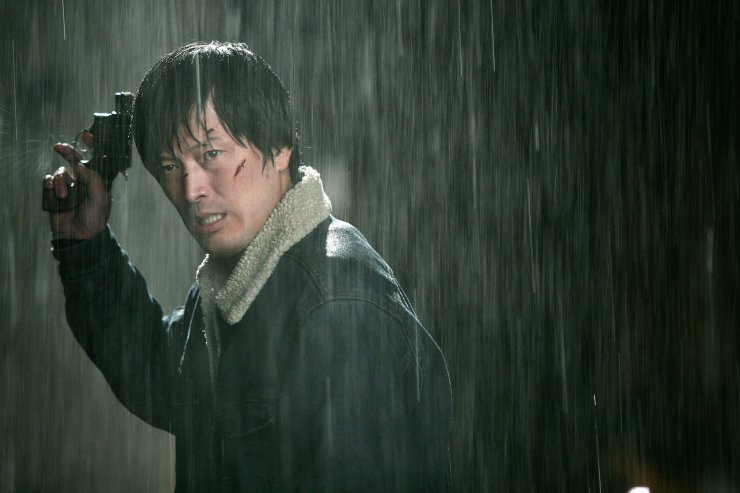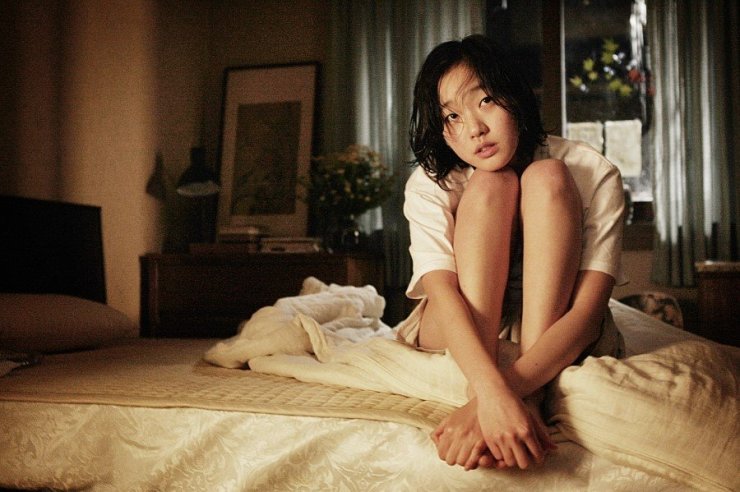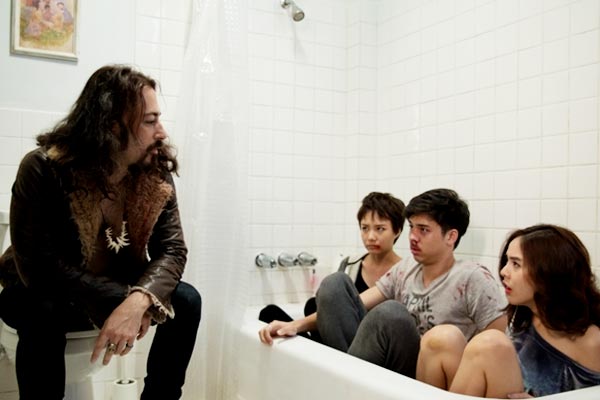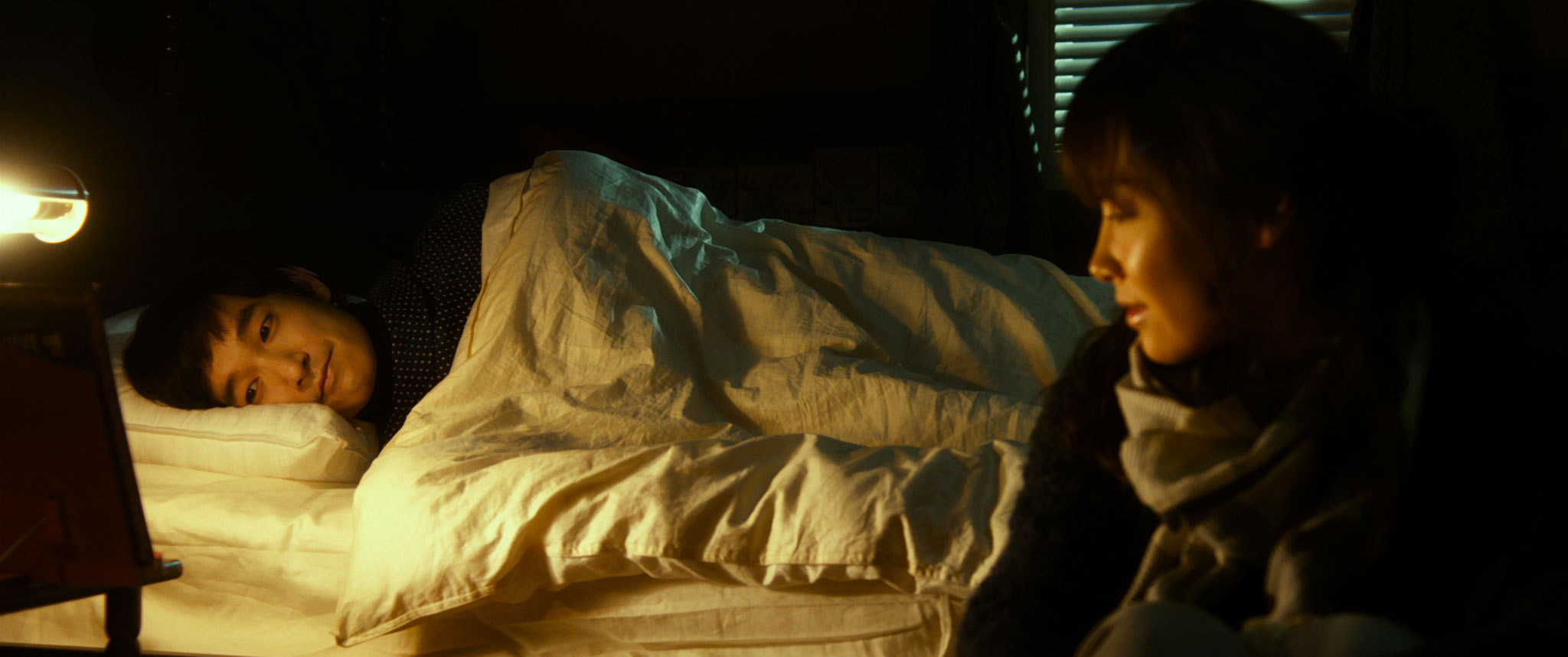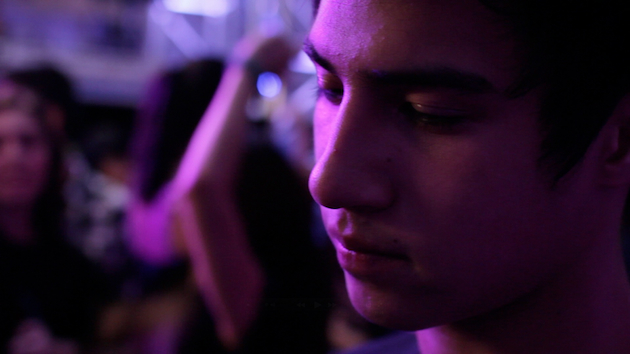The 2013 New York Asian Film Festival Offers Up An Extreme Smattering Of Cinema From The Far East








WHEN A WOLF FALLS IN LOVE WITH A SHEEP (Hou Chi-jan)
Hou’s charming and beautifully made second feature joins other recent films out of Taiwan that prove there’s still life yet in the romantic comedy genre. Set in Taipei’s cram-school district of Nanyang Street, we follow Tung (Kai Ko) and Yang (Chien Man-shu), two lovelorn souls pining for their lost loves, adrift and searching for a sense of purpose among the learning institutions promising bright, “Sure Win” futures.
Hou employs a virtual arsenal of visual tricks – stop-motion and hand-drawn animation, time-lapse, CGI – to wonderfully expressive effect. What at first threatens to be unbearably cute, cloying, and whimsical proves to be anything but, thanks to Hou’s confident mastery of tone. -- Christopher Bourne
CONFESSION OF MURDER (Jeong Byeong-gil)
For those new, and therefore slightly indifferent, to this fest’s unclassifiable pleasures, Confession of Murder should at least represent an ultra-effective long-form PSA against allowing a statute of limitations for homicides, not to mention serial killings. That’s because that’s the script’s premise, equal parts elegant “high concept” and guffaw-provoking, B-movie concept: If a psychopath goes on a redemptive book tour, can you make him pay for his crimes, or at least put a dent in his smug smile? NYAFF vets, however, will recognize a much-beloved pattern: Every ten minutes something patently absurd occurs, but who cares when the tradeoffs in entertainment value are so massive?
As additional support for my enthusiasm, may I simply reference star Jeong Jae-yeong, probably my favorite Korean lead these days? Whether in Moss, Castaway on the Moon, Going by the Book, or Glove—all released just in the last few years—he’s always watchable, making every movie better. Sure, his beyond-obsessive detective role is a cliché that doesn’t require him to “act” much, but that’s also why his aura is so necessary here. Jeong Byeong-gil’s direction is at times over-reaching, at times workmanlike, and never trades in stylistic indulgence. In fact, his largely straightforward approach ends up meshing extremely well with the (apparently) straightforward material, and his handling of the action set pieces is often inspired. In sum, for a fun time at the movies, Confession of Murder is one of the best times you’re likely to have in a New York summer. -- Peter Gutierrez
EUN-GYO (A MUSE) (Jung Ji-woo)
An elderly national poet's fire is rekindled when a bright-eyed high school girl enters his life, in a film that, despite its English title, is anything but inspiring.
Adapted by Jung Ji-woo (Happy End) from Park Bum-Shin's popular and controversial serialized novella, A Muse is thankfully not a blatantly smoldering and risque sex film for the mere sake of titillation, but neither is it a sincere piece on love and loneliness. Although it would like to be. My main gripe with the film is casting 35-year old actor Park Hae-Il (Moss) as the 70-year Lee. While he gets the voice right, the old-age make-up continuously distracts from anything that feels like a heartbreaking performance. The plot itself is only a step up from a standard television melodrama, filled with commercial-grade sentiment and schmaltzy piano cues.
A shame then as there were elements (namely the effervescent Kim Go-Eun as Eun-gyo) that could have elevated this to something far more endearing and bittersweet. -- Ben Umstead
COUNTDOWN (Nattawat Poonpiriya)
A true surprise, and for more than one reason. When a Thai horror movie is billed as coming from the “producers of Shutter,” one expects some gloss on what is essentially a mainstream flick with an easily conveyed hook. One also might expect the story to be set largely in Thailand, even if other locales are visited in passing. Well, none of these assumptions apply in this case—and let me stop with the one already, and confess that these were my expectations drawn from artifacts such as Countdown’s poster, which mostly promises a slick and “sexy” diversion.
Instead, what we’ve got is a surprisingly thoughtful (read: non-formulaic), if ultimately moralistic, psycho-drama set in New York that features a lot of English-language dialogue, and takes place pretty much in one apartment. The latter strategy, although it smacks of a no-budget indie production, seems here to be employed by director Nattawut Poonpiriya in the service of creating a stage play-like intensity. Similarly, the surface emphasis on debauchery is both sincere and an example of bait-and-switch.
In short, this is a midnight movie that works, most of the time, on the level of unpredictable mayhem and humor (the two often go hand in hand) and then decides to get “serious.” The young cast is likable, and I might go so far as to term this a star-making turn for David Asavanond—except that presupposes that sufficient numbers see Countdown… which I hope they do. -- Peter Gutierrez
THE PEACH TREE (Ku Hye-sun)
Multi-hyphenate actress-turned-director Ku’s second feature is a beguiling modern-day fairy tale about a pair of conjoined twins (Jo Seung-woo and Ryu Deok-hwan) with two faces sharing the same head, like a living Janus figure. They have very distinct personalities, one passive and introverted, the other much more expressive and ambitious, who resents the isolation they have been forced into by their parents and the larger society. This brother, who dominates the body they inhabit, writes a children’s book, the very one that lends this film its title.
The Peach Tree is an odd bird, but quite a beautiful one, with Ku making full use of her many talents (she wrote, directed, and composed the score) to convey this moody, melancholic, yet ultimately uplifting tale. -- Christopher Bourne
ABERYA (Christian Linaban)
Whether you like or dislike Aberya after seeing it, it’s difficult to deny the talent and versatility of writer-director Christian Linaban — and his ambition. Nearly every scene betrays a sense of care to myriad filmmaking details, from the nice use of shallow focus to the trippy effects added to several subjective sequences. Moreover, the narrative structure, at turns intriguing and frustratingly opaque, should keep certain adventurous audiences trying to figure out where Linaban is going with all this. Along the way they’ll encounter music video interludes, a ‘60s-style disarming direct address of the viewer, and, throughout, ’90s-style complex, interconnected storylines that crisscross with each other at various points in time (e.g., earlier interactions and nebulous dialogue will suddenly make sense half an hour later).
So although Aberya is a film that probably bears multiple viewings to grasp fully what’s going on, it’s getting through that first viewing that some may find difficult or regrettable. There’s plenty of sex, a bit of violence, and lots of drugs, but we’re never truly shocked or seduced or experience our minds being blown. Uniting all these elements, it eventually becomes clear, are themes of spirituality and shame. And if that sounds a bit vague, sorry, but it’s a reflection of how weakly the dramatic climax landed with me. -- Peter Gutierrez
JUVENILE OFFENDER (Kang Yi-kwan)
This low-key, nicely rendered drama, produced by the Human Rights Commission of Korea (also behind the If You Were Me series of omnibus films) proves to be a major highlight of this year’s festival. Steering clear of the tendency, especially in a Korean cinema context, of making melodramatic mush out of its subject, Juvenile Offender is a tough-minded, neo-neorealist examination of people’s struggles to survive and the institutions that prove to be not entirely adequate in fully helping them.
Kang's nuanced and thoughtful scenario is greatly bolstered by fine performances by Seo Young-ju as the titular troubled youth and by Lee Jung-hyun as his long-estranged young mother, barely more mature than the offspring she gave birth to when she was a teenager herself. -- Christopher Bourne
THE ANIMALS (Gino M. Santos)
It's drugs, sex and dubstep in Santos' debut feature The Animals, a docu-drama look at, and ultimately a pretty straight indictment of, the privileged teens of Manila.
Santos focuses his cameras on Jake, his girlfriend Trina, and her little brother Alex, over the course of one disasterous night. While the film's production is rough around the edges (not totally unexpected for a first time feature) and many of the bit players are clearly (and painfully so) non-actors, there's an edge and an anger to The Animals that in large measure works. Tackling hazing, alcoholism and anorexia all within its lean 80 minutes, Santos' film is an insightful look into the youth culture of the Philippines, but is by no means required viewing. -- Ben Umstead

Around the Internet
Recent Posts
Friday One Sheet: LIVING THE LAND
Now Playing: BLADES OF THE GUARDIANS and Some Other Movies
Leading Voices in Global Cinema
- Peter Martin, Dallas, Texas
- Managing Editor
- Andrew Mack, Toronto, Canada
- Editor, News
- Ard Vijn, Rotterdam, The Netherlands
- Editor, Europe
- Benjamin Umstead, Los Angeles, California
- Editor, U.S.
- J Hurtado, Dallas, Texas
- Editor, U.S.
- James Marsh, Hong Kong, China
- Editor, Asia
- Michele "Izzy" Galgana, New England
- Editor, U.S.
- Ryland Aldrich, Los Angeles, California
- Editor, Festivals
- Shelagh Rowan-Legg
- Editor, Canada



